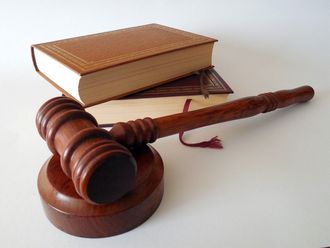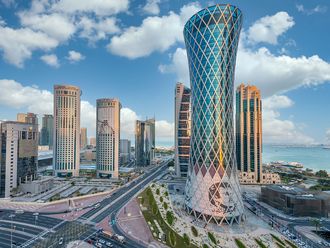Manama: A group of Egyptian students from the American University of Cairo (AUC) have seized an opportunity offered by the Doha Debates to express their hope and confidence that the Egyptian revolution will bring in positive changes in the economic, political and educational areas.
The 10 Egyptian students, connected with an audience of about 80 students from various universities and educational institutions across Qatar in a special session, warned against any foreign intervention and expected a balanced role by the Egyptian military in the transition to a democratic system.
"We will not allow any foreign power to meddle in our affairs," said an AUC student, when asked about his views on future relations between Egypt and the US.
"There is a deep mistrust among the Egyptian people about the American involvement. Over the past 30 years, the US had allied with the Egyptian regime to protect its own interests and the interests of Israel," said another student, Qatari daily The Peninsula reported on Tuesday.
On the involvement of the military in the transition period, one student from Cairo said that there was a division in Egyptian society over its role. "It is related to the fallen regime and has its own political agenda. So we are watching it and will hold it to account," the student said.
One student spoke of his imprisonment for a day by the security forces, while another contrasted events with those in Egypt's second city, Alexandria.
They said there was a general feeling in Egypt that the six-month period given for the elections was too short for the political parties to reorganise. They agreed that a stable political system was a necessary prerequisite for bringing positive changes in the economic and educational system in the country.
"The next five years will be a trial period for a new government. We may have to wait for another president to provide a mature government," one student said.
Only two of the 10 Egyptian students said Mohammad Al Baradei was a favourite candidate for presidency.
The students hoped that the unpopular Central Security force in Egypt would stop interfering in the country's affairs and limit its role to fighting terrorism and maintaining security.
The role of media in the revolution was discussed and one AUC participant explained how new technologies have been adopted by the interim government. "Now the military and cabinet release their statements on Facebook. We like this," she said.
The Egyptian students were keen to know about the political situation in Qatar and wondered how a state-backed TV channel such as Al Jazeera enjoyed so much freedom in the country.












